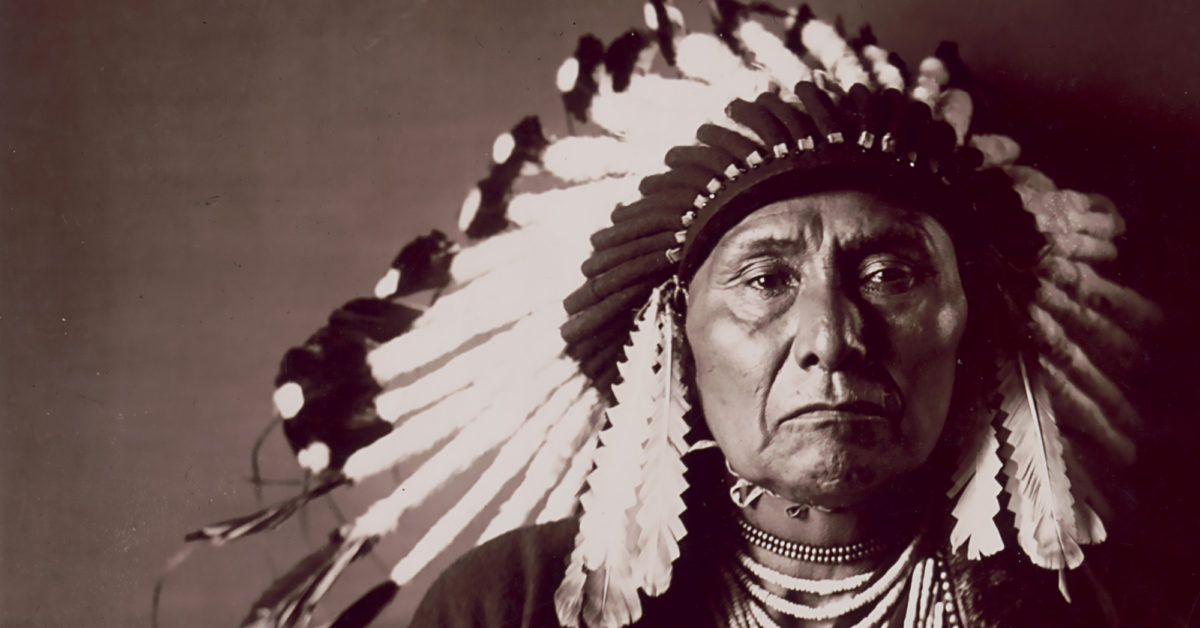Some Western Indians had a way with words. No doubt at times things were lost in translation, but at other times something was gained. Here’s a favorite “no bull” quote from the Lakota leader Sitting Bull: “If the Great Spirit had desired me to be a white man, he would have made me so in the first place. He put in your heart certain wishes and plans; in my heart he put other and different desires. It is not necessary for eagles to be crows.” Lakota Chief Red Cloud, who fought and spoke well, gave this assessment of how U.S. government officials treated his people: “They made us many promises, more than I can remember. But they never kept but one; they promised to take our land, and they took it.”
Historians credit the oft-repeated line “A good day to die” or “It is a good day to die” to an Oglala Lakota participant at the Battle of the Little Bighorn—either Crazy Horse or Low Dog. Had Lt. Col. George Armstrong Custer heard such an utterance from the enemy at Last Stand Hill, would his reply have been an audacious, “You bet!” or a humble, “That’s easy for you to say”? I’ll leave it to Custer detractors and Custer advocates to battle over that hypothetical dialogue.
The most lyrical and spiritual Indian words came from Black Elk through writer-ethnographer John G. Neihardt, whose 1932 book Black Elk Speaks was based on their conversations as translated by the Oglala Lakota holy man’s son Ben Black Elk. How much of the book is Black Elk and how much is Neihardt remains open to debate, but that takes nothing away from such winning words as, “Any man who is attached to things of this world is one who lives in ignorance and is being consumed by the snakes of his own passions.” Diamondback rattlesnakes, I presume.
It was not a Lakota, however, who provided the most memorable 19th-century Western Indian quote of them all. Credit goes to Nez Perce Chief Joseph, a leader of the fantastic 1877 Nez Perce “flight and fight for freedom”—a 16-week, 1,000-plus-mile arduous trek from the Wallowa Valley in northeast Oregon to northern Montana Territory. After the September 30–October 5 Battle of Bear’s Paw, White Bird led several dozen Nez Perces into Canada to seek sanctuary with Sitting Bull, while Joseph was one of the 68 warriors who surrendered to the U.S. Army. “After days of siege the Nez Perce people were tired, wounded and no doubt hungry,” says Candy Moulton, who wrote a biography of Chief Joseph and the cover article about him in the April 2014 issue of Wild West. “All the headmen except for White Bird and Chief Joseph had been killed. Joseph made the decision he would surrender and told this to Old George and Captain John, Nez Perce men who had been scouting for the Army but who had daughters in the Nez Perce camp.” The two scouts relayed Joseph’s words, including his famous quote—“Hear me, my chiefs. I am tired; my heart is sick and sad. From where the sun now stands, I will fight no more forever”—to Brig. Gen. Oliver O. Howard, who had reached the battlefield on the evening of October 4. After the message was delivered, and recorded for posterity by Lieutenant Charles Erskine Scott Wood, the general’s aide-de-camp, Joseph rode to the soldiers’ camp and handed his rifle to Colonel Nelson A. Miles.
Chief Joseph’s memorable sentiments helped him achieve everlasting fame, but historians have questioned the accuracy of Wood’s transcription. “Did Joseph utter that defining statement: ‘From where the sun now stands, I will fight no more forever’?” asks Moulton. “Truly only the chief, Old George and Captain John could say for certain. But because Indian culture relies so strongly on oral tradition in recording important events, I believe that while he may not have said those precise words, he did convey that precise meaning.”
Joseph was no military leader, let alone a “Red Napoléon,” as the press called him. Looking Glass, killed in action before the surrender, and other Nez Perce chiefs devised the strategy during the skillful retreat from the pursuing Army. Nevertheless, Joseph was a man of principle, and no matter what his exact words were that day at Bear’s Paw, he never fought again (at least not on the battlefield) and for the rest of his life spoke eloquently against the injustices of U.S. policy toward his people. “Chief Joseph was cool.” You can quote me on that.





